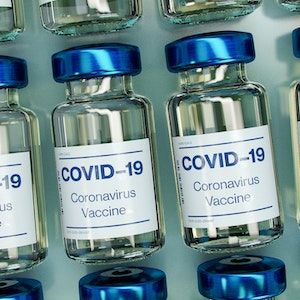Article
Risk of Myocarditis in Adolescent Population Linked to COVID-19 Vaccination
Author(s):
Investigators believe benefit of COVID-19 vaccination outweigh the risk of myocarditis in adolescent population.

Although initial reports have determined the BNT162b2 (Pfizer-BioNTech) COVID-19 vaccine to be well-tolerated without serious adverse events, cases of myocarditis have been reported since the Emergency Use Approval in May 2021.
A recent study outlined the occurrence of myocarditis in an adolescent population younger than 19 years, who were hospitalized with myocarditis within 30 days of receiving the vaccine.
A team of investigators, led by Audrey Dionne, MD, Department of Cardiology, Boston Children's Hospital, found myocarditis was most commonly diagnosed in boys after the second dose with a mild short-term course, but long-term risks of post-vaccination myocarditis remain unknown.
Study Methods
The case series study included all patients ≤19 years old with acute myocarditis after COVID-19 vaccination at a single-center, pediatric referral facility with admissions between May - July 2021.
Investigators defined myocarditis as chest pain and elevated troponin levels in the absence of an alternate diagnosis.
Demographics including race and ethnicity were self-reported according to United States Census categories, due to known association with COVID-19 related illness.
The team defined elevated troponin T level as ≥0.01 ng/mL. In addition, all patients underwent cardiac evaluation, including electrocardiogram, echocardiogram, and cardiac magnetic resonance imaging.
Results
A total of 15 patients were admitted for the management of myocarditis after COVID-19 vaccination between May - July 2021. The team noted symptoms manifested after the second dose in all cases, but 1 in the study.
Patients had a median age of 15 years old, with the majority of patients male (93%) and self-identified non-Hispanic White (n = 8) followed by Hispanic White (n = 2), other Hispanic (n = 1) other non-Hispanic (n = 1), and unknown (n = 3).
Data show chest pain occurred in all 15 patients, with a median of 3 days. Further, investigators observed fever in 10 patients (67%), myalgia in 8 patients (53%), and headache in 6 patients (40%).
In addition, troponin levels were found elevated in all patients at admission, with a median of 0.25 ng/mL and peaked 0.1 to 2.3 days following admission.
In an echocardiogram examination, a total of 3 patients (20%) had decreased left ventricular ejection fraction. In 5 patients (33%), the team observed abnormal global longitudinal or circumferential strain.
Investigators also observed cardiac magnetic resonance imaging findings showed consistency with myocarditis in 13 patients (87%).
Data show this included late gadolinium enhancement in 12 patients (80%), regional hyperintensity on T2-weighted imaging in 2 patients (13%), elevated extracellular volume fraction in 3 patients (20%), and elevated LV global native T1 in 2 patients (20%).
They noted no patient required ICU admission, with a median hospital length of stay of 2 days. In follow-up of 1 - 13 days after hospital discharge, 11 patients (73%) showed resolution of symptoms. However, 1 patient had persistent borderline low LV systolic function on echocardiogram, while troponin levels remained mildly elevated in 3 patients.
Conclusion
Investigators concluded that although vaccine-related myocarditis was generally uncomplicated and short-term, there is uncertainty about the long-term prognosis.
However, they noted that despite the risk of myocarditis, the benefits of vaccination likely outweigh the risks in adolescents and children.
“It is estimated that COVID-19 vaccination in males aged 12 to 29 years can prevent 11 000 COVID-19 cases, 560 hospitalizations, 138 intensive care unit admissions, and 6 deaths compared with 39 to 47 expected myocarditis cases,” investigators wrote.
The study, “Association of Myocarditis With BNT162b2 Messenger RNA COVID-19 Vaccine in a Case Series of Children,” was published in JAMA Cardiology.



